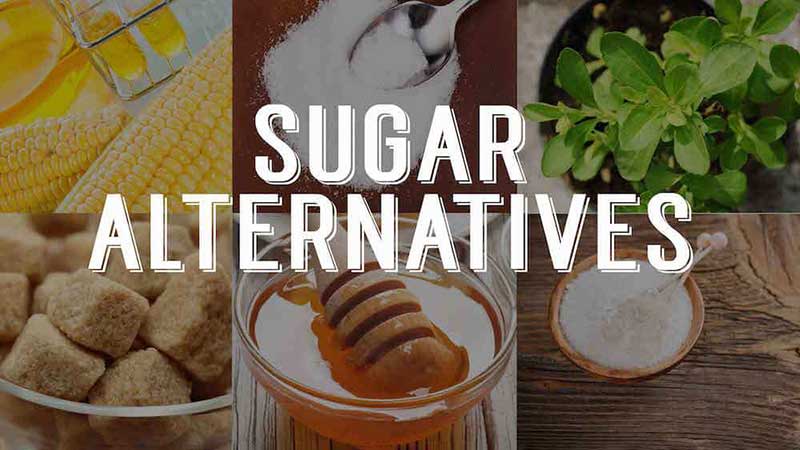
The best alternative for sugar depends on individual needs and preferences, as well as the specific context in which the sugar substitute will be used. Here are some popular sugar alternatives, each with its own unique characteristics and benefits:
Natural Sweeteners
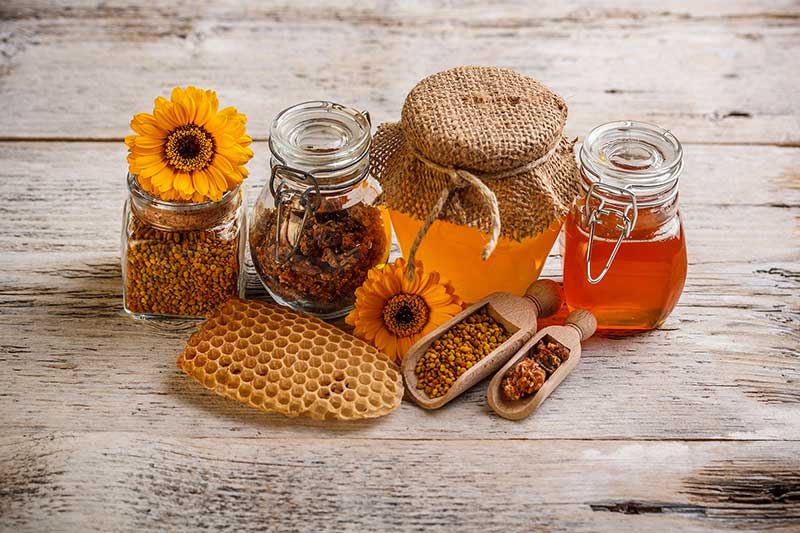
- Honey:
- Taste: Has a unique, sweet flavor with slight floral notes.
- Health Benefits: Contains antioxidants and may have wound-healing properties.
- Usage: Suitable for baking, teas, and as a spread.
- Maple Syrup:
- Taste: Has a rich, caramel-like flavor.
- Health Benefits: Contains minerals like magnesium and zinc.
- Usage: Can be used in baking, on pancakes, or as a topping for yogurt.
- Agave Syrup:
- Taste: Has a mild, sweet flavor.
- Health Benefits: Lower in glycemic index compared to some other sweeteners.
- Usage: Great for drinks, smoothies, and baking.
- Coconut Sugar:
- Taste: Similar to brown sugar, with a slight caramel flavor.
- Health Benefits: Considered a lower glycemic option.
- Usage: Can replace brown sugar in recipes.
- Stevia:
- Taste: Very sweet, with a slight bitter aftertaste when used in high quantities.
- Health Benefits: High in sweetness with zero calories.
- Usage: Best used in moderation or mixed with other sweeteners to balance flavor.
- Monk Fruit Extract:
- Taste: Very sweet, similar to stevia.
- Health Benefits: Zero calories and low glycemic impact.
- Usage: Suitable for teas, coffee, and baking.
Artificial Sweeteners
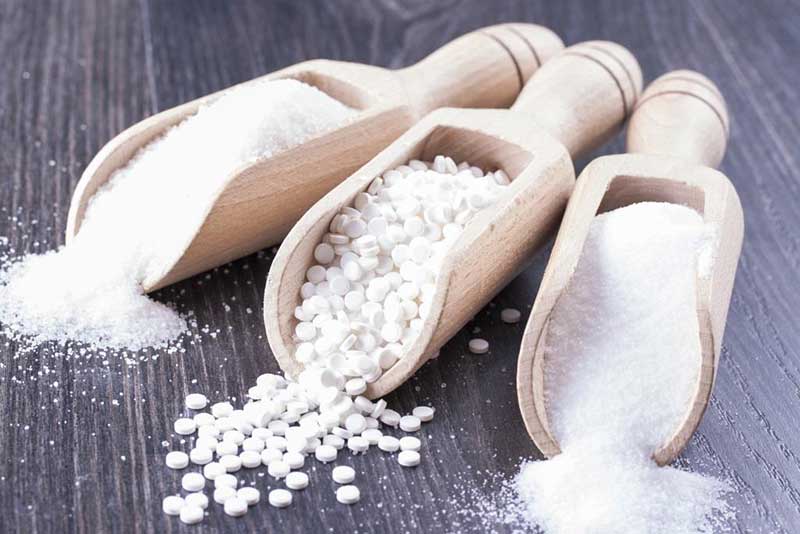
- Aspartame (NutraSweet, Equal):
- Taste: Close to sugar.
- Health Benefits: Low-calorie.
- Usage: Common in diet sodas and low-calorie foods.
- Sucralose (Splenda):
- Taste: Similar to sugar.
- Health Benefits: Low-calorie, stable at high temperatures.
- Usage: Suitable for baking and cooking.
- Acesulfame Potassium (Ace-K, Sunett, Sweet One):
- Taste: Very sweet.
- Health Benefits: Low-calorie, stable in a variety of foods.
- Usage: Often used in combination with other sweeteners.
Sugar Alcohols
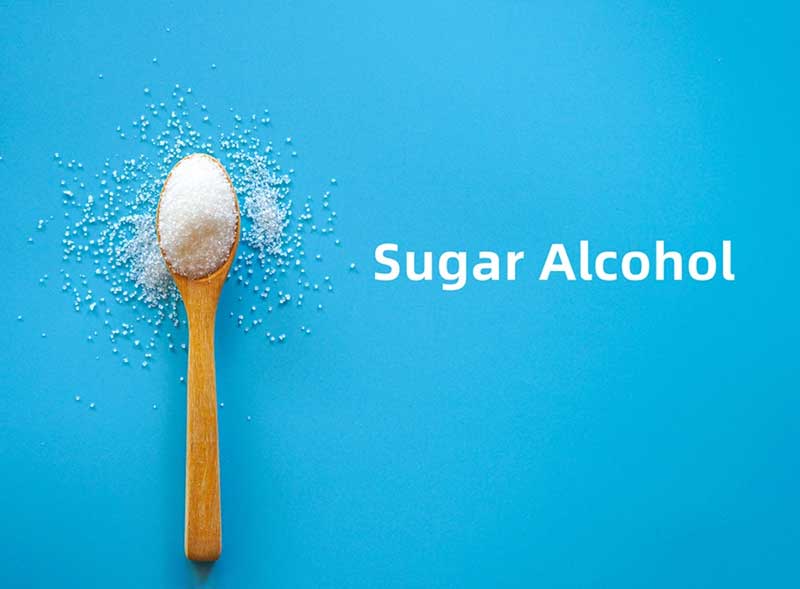
- Xylitol:
- Taste: Similar to sugar.
- Health Benefits: Low glycemic index, may help prevent dental cavities.
- Usage: Suitable for baking, chewing gum, and other products.
- Erythritol:
- Taste: Close to sugar, with a slight cooling effect.
- Health Benefits: Low-calorie, non-glycemic.
- Usage: Good for baking, candies, and beverages.
Emerging Alternatives
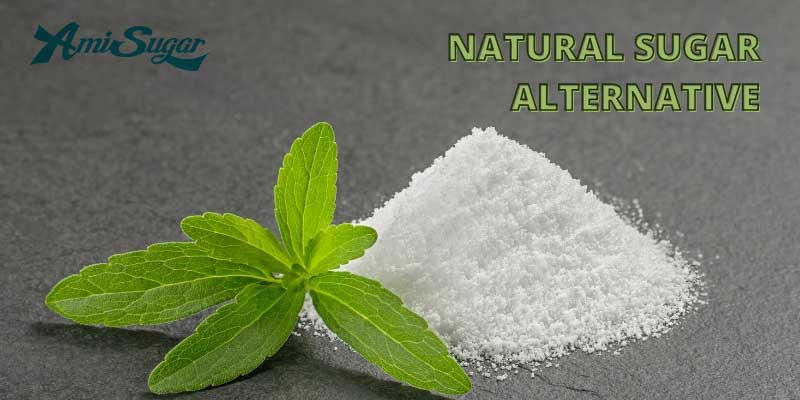
- Allulose:
- Taste: Similar to sugar but with about 70% of the sweetness.
- Health Benefits: Low-calorie, non-glycemic.
- Usage: Can be used in baking and cooking.
- Fruit-based Sweeteners:
- Examples: Products like Fruititive, made from fruit scraps and leftovers.
- Taste: Varies based on the fruit source.
- Health Benefits: Natural, may have additional nutrients.
- Usage: Suitable for a variety of food and beverage applications.
Considerations for Choosing a Sugar Alternative
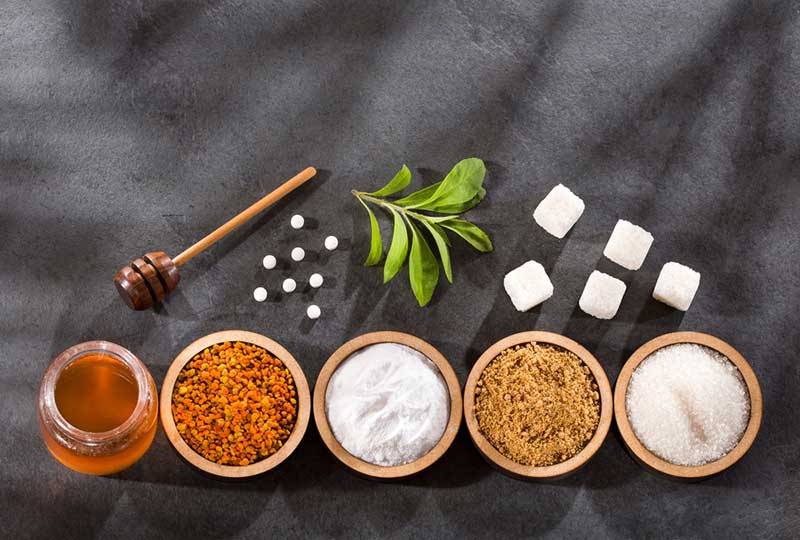
- Health Concerns: Consider individual health needs, such as diabetes, weight management, or allergies.
- Taste Preferences: Some sugar alternatives may have a different taste or aftertaste compared to sugar.
- Usage: Different sweeteners may be better suited for specific uses, such as baking, cooking, or adding to beverages.
- Environmental Impact: Consider the environmental footprint of sugar alternatives, including their production and disposal.
the best sugar alternative depends on your specific needs and preferences. It’s important to research and understand the characteristics and benefits of each option before making a decision.


Sugar cravings disappeared after switching to allulose. Magic!
Artificial sweeteners give me migraines. Honey and maple syrup are natural, but still high in calories. Is there a healthier middle ground?
Allulose tastes identical to sugar! Worth every penny for my sanity.
Packaging waste from stevia packets bothers me. Are there zero-waste options?
Packaging waste from stevia packets bothers me. Are there zero-waste options?
Cooking with monk fruit: do I need to adjust baking times/temps?
Moderation is key! I use erythritol sometimes, but don’t skip real sugar on special occasions.
Honey crystallizes in my pantry. How do I keep it liquid?
Quit diet sodas with sucralose—now I add orange to sparkling water. Retraining my taste buds was the best choice!
Allulose tastes identical to sugar! Worth every penny for my sanity.
Allulose is keto-friendly and doesn’t spike insulin. Life saver!
Swerve (erythritol blend) is a game-changer for caramel sauces!
Quit diet sodas with sucralose—now I add orange to sparkling water. Retraining my taste buds was the best choice!
Can I use monk fruit in place of sugar in cocktails?
My cat knocked over a xylitol jar—scary stuff! Pet owners beware.
Xylitol gave me digestive issues. Stevia drops in tea are my safe bet. Everyone’s body reacts differently!
Brown rice syrup: healthy or hype? Tastes like molasses.
Artificial sweeteners give me migraines. Honey and maple syrup are natural, but still high in calories. Is there a healthier middle ground?
Tried yacon syrup—tastes great but expensive. Anyone else use it?
Erythritol is my go-to for keto baking! It works well in cookies, but doesn’t caramelize like sugar. Any tips for browning?
Can I use monk fruit in place of sugar in cocktails?
Confused about “natural” vs. “artificial” labels. Aren’t all sweeteners processed somehow?
Stevia powder clumps in cold drinks. Any solutions?
Tried all natural sweeteners—still prefer sugar in moderation. Maybe the best alternative is just eating less?
Packaging waste from stevia packets bothers me. Are there zero-waste options?
Stevia balances flavors in savory marinades—a game-changer for cooking!
Ate too much erythritol once—big mistake. Stick to moderation with sugar alcohols.
Used agave nectar for years, but heard it’s high in fructose. Should I be concerned? It’s so smooth in smoothies…
Swerve (erythritol blend) is a game-changer for caramel sauces!
Stevia’s bitterness is tolerable in coffee but not in baking. Any brands without aftertaste?
Erythritol is my go-to for keto baking! It works well in cookies, but doesn’t caramelize like sugar. Any tips for browning?
Stevia powder clumps in cold drinks. Any solutions?
Sugar cravings disappeared after switching to allulose. Magic!
Xylitol gave me digestive issues. Stevia drops in tea are my safe bet. Everyone’s body reacts differently!
Stevia’s bitterness is tolerable in coffee but not in baking. Any brands without aftertaste?